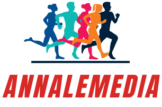In a world where kale smoothies reign supreme and protein powders are practically a food group, understanding sports nutrition has never been more crucial. Online sports nutrition courses offer the perfect opportunity to dive into the science of fueling athletes—without the need for a lab coat or a PhD. Whether you’re a weekend warrior, a fitness fanatic, or just someone who loves to munch on energy bars, these courses can transform your knowledge and your plate.
Online Sports Nutrition Courses
Online sports nutrition courses offer a flexible avenue for learning the principles of nutrition tailored specifically for athletes. These programs cover a range of topics, including macronutrients, micronutrients, hydration, and meal planning. Students explore how nutrition supports athletic performance and recovery.
Individuals enrolled in these courses benefit from interactive modules, quizzes, and access to expert instructors. Many programs provide videos and reading materials to enhance the learning experience. Participants can often engage in forums or group discussions, allowing for knowledge sharing with fellow students.
Course duration varies widely, typically lasting from a few weeks to several months. Some platforms offer certifications upon completion, demonstrating proficiency in sports nutrition. These credentials add value for professionals seeking to advance their careers in fitness, coaching, or nutrition counseling.
Target audiences include fitness trainers, nutritionists, and health professionals, as well as recreational athletes looking to improve their diets. Specific programs cater to particular interests, such as nutrition for endurance sports or strength training.
Institutions offering online sports nutrition courses include accredited universities, specialized fitness organizations, and dedicated online learning platforms. Students should ensure the course they select aligns with their career goals and interests. Exploring various options enables individuals to find the best fit for their educational needs.
Benefits of Taking Online Sports Nutrition Courses

Online sports nutrition courses offer significant advantages that cater to busy individuals aiming to enhance their knowledge. These programs provide extensive flexibility and convenience, allowing learners to access materials anytime and anywhere. Students can structure their study times to fit their schedules, making it easier to balance work, family, and other commitments.
Flexibility and Convenience
Learning through online platforms means individuals don’t need to be physically present in a classroom. Participants can advance through modules at their own pace and revisit material as needed. This self-directed approach empowers students to tailor their learning experience based on personal goals. The asynchronous format of many courses allows for participation during peak productivity hours, ensuring that learners can absorb information effectively.
Accessibility of Resources
Access to resources represents a pivotal benefit of online courses. Students can download lecture notes, view videos, and take advantage of various interactive tools anytime they wish. Most programs offer a centralized hub providing academic articles, research studies, and practical guides. This feature ensures participants remain informed about the latest developments in sports nutrition. Furthermore, forums and discussion groups facilitate social interaction, allowing learners to engage with peers and instructors for additional support.
Key Features to Look for in a Course
When exploring online sports nutrition courses, it’s essential to identify key features that enhance the learning experience. Prioritizing these elements ensures a comprehensive education.
Accredited Programs
Seek out programs that carry accreditation from recognized institutions. Accreditation confirms the course meets established educational standards and enhances credibility. Graduates often find better job prospects within the fitness and nutrition industries. Examples of accredited programs include those offered by universities or national organizations recognized in the health sector. Investigate the accreditation details before enrolling to ensure the program aligns with professional goals.
Course Content and Curriculum
Evaluate the course content and curriculum for relevance and depth. Comprehensive programs should cover essential topics like macronutrients, micronutrients, and meal planning. Look for courses that incorporate practical applications for athletic performance and recovery. Interactive components, such as quizzes and case studies, significantly enhance understanding. Additionally, courses addressing specific interests like endurance sports or strength training can deepen knowledge in those areas. Selecting a curriculum with varied resources, such as videos and downloadable materials, enriches the learning experience.
Popular Online Sports Nutrition Courses
Numerous online sports nutrition courses cater to various interests and professional goals. These programs equip individuals with knowledge that enhances athletic performance through proper nutrition.
Course Comparison
Different courses vary in curriculum and delivery methods. Accredited institutions, like the International Sports Sciences Association (ISSA) and the National Academy of Sports Medicine (NASM), offer certifications that deepen understanding of nutrition principles. Some programs focus on specific areas, such as endurance training or sports therapy, while others provide a broad overview. Course lengths range from 4 weeks to 6 months, allowing flexibility that suits busy schedules. Pricing can also be diverse, with some courses available for as low as $200 and others exceeding $1,000, depending on depth and accreditation. Evaluating these factors will help identify the best fit.
Student Experiences and Reviews
Student feedback often highlights the practical applications of course materials. Graduates from the American Council on Exercise (ACE) frequently praise the interactive components, such as quizzes and case studies, which enhance understanding. Community forums foster engagement and support among learners, making it easier to share insights. Students also appreciate the flexibility that allows them to study at their convenience. Reviews reflect an overall satisfaction with the course content, emphasizing its relevance to real-world scenarios. Many express confidence in applying their newfound knowledge to improve their own performance or that of their clients.
Tips for Choosing the Right Course
Prioritize accredited programs. Accreditation signals that the course aligns with industry standards and improves job prospects within the fitness and nutrition sectors. Assess course content carefully. Ensure that the curriculum encompasses essential topics, like macronutrients, hydration, and practical applications related to athletic performance.
Consider interactive components. Quizzes, case studies, and discussion forums enhance understanding and foster engagement among participants. Review the flexibility of the course structure. Options that allow learners to study at their own pace accommodate different schedules and commitments.
Evaluate the track record of the institution. Research testimonials from past students to gauge satisfaction and relevance of course materials. Compare courses based on delivery methods. Different formats, such as live classes versus self-paced modules, each offer unique advantages depending on personal learning preferences.
Explore specific interests within sports nutrition. Tailored courses focused on endurance sports or strength training can deepen expertise in particular areas. Investigate additional resources provided. Access to downloadable materials, videos, and expert instructors facilitates a comprehensive learning experience.
Understand the financial investment. Course prices vary significantly, from $200 to over $1,000, indicating differences in depth and accreditation. Reflect on how the course aligns with career goals. Choosing a program that fits professional aspirations can enhance knowledge and potentially boost career advancement.
Identify courses that feature community interaction. Engaging with peers and instructors through forums can enhance collaborative learning. Finally, maintain awareness of updates in course offerings. The field of sports nutrition is dynamic, and staying informed can lead to better decisions regarding education.
Conclusion
Online sports nutrition courses provide an invaluable resource for anyone looking to deepen their understanding of nutrition and its impact on athletic performance. With flexible learning options and a variety of accredited programs available, individuals can tailor their education to fit their personal and professional goals.
These courses not only equip learners with essential knowledge but also foster a supportive community through interactive modules and forums. As the demand for nutrition expertise continues to grow in the fitness industry, investing in an online sports nutrition course can enhance career prospects and empower individuals to make informed dietary choices. Embracing this opportunity can lead to improved performance for both personal fitness journeys and professional endeavors.

